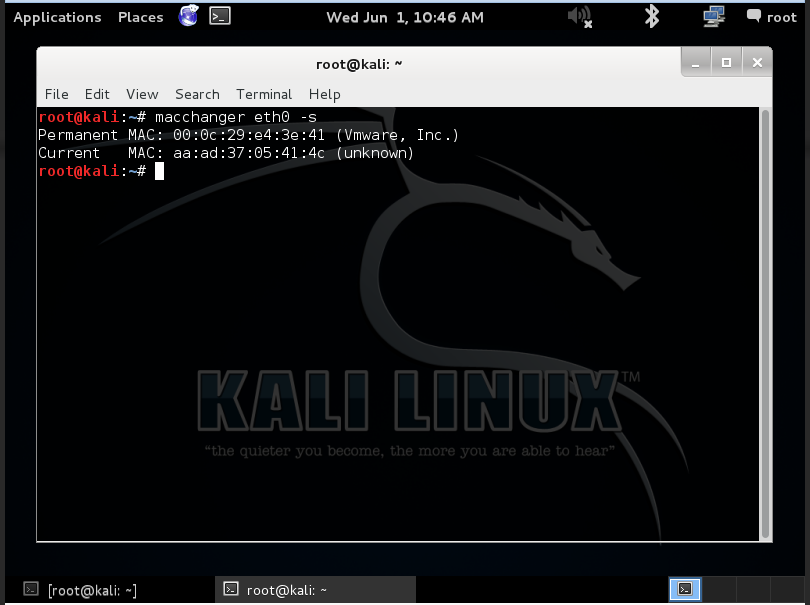


Multi-language Support - Although penetration tools tend to be written in English, it has been ensured that Kali includes true multilingual support, allowing more users to operate in their native language and locate the tools they need for the job.Their development tree is publicly viewable on Git and all of the code is available for your tweaking purposes. Open-source - Kali, being a member of the Linux family, follows the widely appreciated open-source model.More tools than you could think of - Kali Linux comes with over 600 different penetration testing and security analytics related tool.As free as it can get - Kali Linux has been and will always be free to use.There are a wide array of reasons as to why one should use Kali Linux. The development of these updates is handled by Offensive Security. Since then, Kali Linux has been through a number of major updates.

Kali Linux came out of development with its first release in 2013. Only a very selected few developers were allowed to commit packages, that too in a protected environment. The development began in early March 2012, amongst a small group of developers. The development of Kali is set according to the Debian standards as it imports the majority of its code from Debian repositories. It was a rewrite of Backtrack Linux, which was another penetration testing centric Linux distribution.

Mati Aharoni and Deavon Kearns are the core developers of Kali Linux. This makes ethical hacking using Kali Linux a simplified task. Previously known as Backtrack, Kali Linux advertises itself as a more polished successor with more testing-centric tools, unlike Backtrack which had multiple tools that would serve the same purpose, in turn, making it jampacked with unnecessary utilities. The presence of a plethora of tools that come pre-installed with Kali transforms it into an ethical hacker’s swiss-knife. It is a meticulously crafted OS that specifically caters to the likes of network analysts & penetration testers. Kali Linux is a Debian-based Linux distribution.


 0 kommentar(er)
0 kommentar(er)
